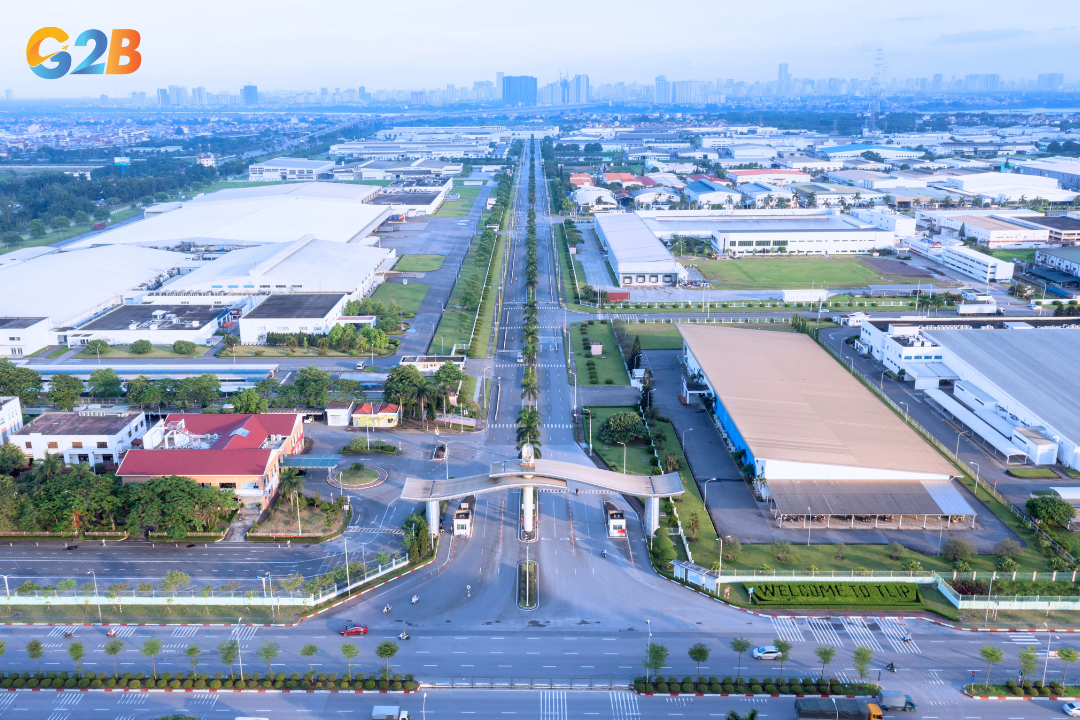Vietnam has emerged as a global manufacturing hub, offering many opportunities for investors looking to set up manufacturing businesses. Setting up a manufacturing company in Vietnam not only presents business growth potential but also helps companies tap into global supply chains. With proper understanding and planning, investors can maximize the benefits of Vietnam’s business-friendly environment. Let’s investigate the leading manufacturing industries in Vietnam in 2024 and the procedure for manufacturing business registration in Vietnam.
Top manufacturing industries for business registration in Vietnam
Vietnam’s manufacturing landscape is diverse, with several industries offering immense growth opportunities. Among these, electronics, garments, food processing, and automobiles stand out as leading sectors.
Electronics
In 2024, Vietnam continues strengthening its position as a global hub for electronics manufacturing. The country exported electronic goods, computers, and components worth $53.7 billion in the first 10 months of the year, reflecting a 5.7% increase compared to 2023. Samsung Electronics remains a significant contributor, with smartphone and component exports totaling $60.5 billion, supporting the country’s export-driven economy. Vietnam ranks among the top electronic exporters worldwide, primarily due to substantial foreign direct investment (FDI). Leading global tech firms, including Samsung, Foxconn, Canon, LG, and Intel, continue expanding their production facilities in Vietnam, drawn by its competitive workforce and favorable business environment.

Vietnam is a key player in global electronics manufacturing and exports
Food processing
The food processing sector in Vietnam continues to show strong growth, fueled by domestic and foreign investment. The sector remains attractive for foreign investors, especially in dairy and beverage products. In Q1 2024, Vietnam's processed seafood exports reached approximately $1.86 billion, reflecting steady demand, particularly in key markets such as the EU and the U.S. Other agricultural products like processed nuts and spices have also contributed substantially to export revenue. Coffee, pepper, and cashews remain key processed agricultural products driving inventory and export activities. This growth aligns with Vietnam's strategic goal to position itself among the top 10 global agricultural processors by 2030.
Automobiles
The automotive industry in Vietnam has been experiencing significant growth, particularly with the rise of VinFast, a Vietnamese automaker. As of 2024, VinFast has made considerable strides in the electric vehicle (EV) market, delivering nearly 22,000 electric cars in the first half of the year alone, marking a 92% increase in sales compared to the same period in 2023. Vietnam's car import market has also expanded. The government has supported this growth by reducing taxes on locally produced car components, which has helped lower production costs and attract further investment into the sector. The country is expected to grow as a major automotive hub, especially with the government's support for green vehicles and the industry's ongoing transformation.
Textile and garment sector
According to the Vietnam Textile and Apparel Association (VITAS), Vietnam’s textile and garment exports are projected to reach 39-40 billion USD by the end of 2024, reflecting global demand and competitiveness challenges. This marks a decline compared to the 44 billion USD recorded in 2022 due to weaker economic conditions globally. Vietnam remains one of the world's leading textile exporters, holding the third position globally. The country accounts for approximately 4.4% of the global textile export market share in 2024. In particular, Nike continues to rely heavily on Vietnam as a key manufacturing hub. As of 2024, 50% of Nike’s global footwear is produced in Vietnam, a slight decrease compared to previous years, while China's share has further dropped to 19%, emphasizing the shifting production trends.

Vietnam’s garment industry drives export growth and global competitiveness
Set-up guide for manufacturing companies
Setting up a manufacturing company in Vietnam involves strategic planning and adherence to regulatory requirements. Investors should choose the appropriate company structure and follow a clear process of business registration in Vietnam.
Choosing a company structure
Foreign investors can set up businesses in Vietnam, such as Company Limited (Co. Ltd), Joint Stock Companies (JSCs), representative offices, or branch offices. Co. Ltd is ideal for small to medium enterprises, offering a simple setup process that typically takes 45 days. JSCs are better suited for larger operations, allowing unlimited shareholders. Representative offices and branch offices provide flexibility for promotional activities or integrating with parent companies abroad. Each structure has its benefits and limitations, making it crucial to align the choice with business goals. Co. Ltd is favored for its simplicity, while JSC provides expansive shareholder options. Representative offices are suited for non-commercial activities, whereas branch offices integrate with global operations.
With G2B, you can streamline your setup process and focus on your core business activities. Our dedicated team is here to help you with all your needs. G2B services provide assistance in business registration in Vietnam, offering professional and reliable support, guiding businesses through proper company establishment and annual compliance, opening local/digital bank accounts, ensuring smooth operations, and minimizing legal risks from the outset.
Steps for manufacturing business registration in Vietnam
The registration process begins with selecting a suitable location, which could be in industrial parks or high-tech zones. Investors must provide the necessary documentation, secure an Investment Registration Certificate (IRC), and obtain an Enterprise Registration Certificate (ERC). Additional licenses may be required based on the business line and environmental impact. These processes typically take 10 to 30 days. After securing the necessary permits, businesses must create a bank account, register for taxes, and obtain an electronic signature for invoicing. Having a clear roadmap ensures smooth navigation through Vietnam’s regulatory landscape, paving the way for successful operations.

Registering a manufacturing company involves multiple compliance steps
Vietnam stands out as a top destination for manufacturing enterprises. This country presents immense opportunities for businesses looking to establish manufacturing operations. Investors can access a growing market and integrate into global supply chains by selecting the right company structure and following Vietnam's streamlined registration procedures. With G2B, you're not just choosing a consultancy to help with business registration in Vietnam, you are choosing a partner who will stand by your side throughout your entrepreneurial journey. Contact G2B today to learn more about how we can help you with your business goal in Vietnam.


 Delaware (USA)
Delaware (USA)  Vietnam
Vietnam  Singapore
Singapore  Hong Kong
Hong Kong  United Kingdom
United Kingdom 
